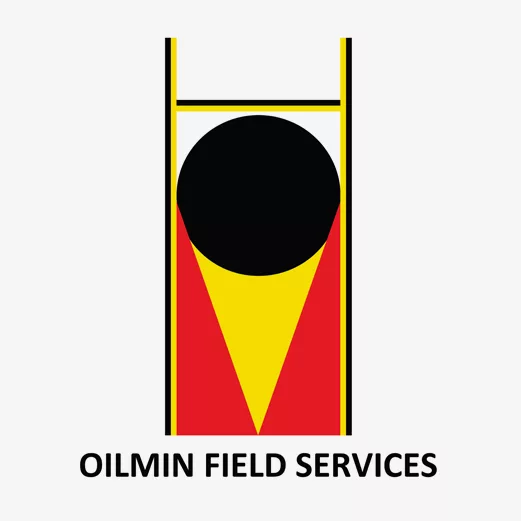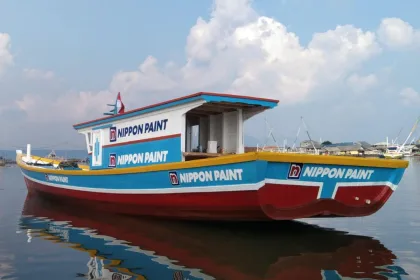Wapu Sonk, Managing Director of Kumul Petroleum Holdings Limited, provides insight into the company’s extensive initiatives focused on enhancing quality of life in Papua New Guinea, whilst ensuring the development of sustainable energy sources.
POWERING A NATION
As an island nation in the southwestern Pacific, Papua New Guinea (PNG) boasts awe-inspiring scenery that reflects its geology, which is rich in a wide array of natural resources.
With a flat coastal terrain and a predominantly mountainous interior, PNG has a canopy of tropical rainforests, savannah woodlands, swamps, and mangroves covering the landscape. Alongside abundant marine life and plentiful agricultural potential, it has significant oil, natural gas, gold, copper, and other mineral deposits.
With a population of at least 11 million, PNG faces the critical task of tapping into its natural resources to ensure its people have access to vital energy resources.
This is where Kumul Petroleum Holdings Limited (KPHL) steps in as the national petroleum and energy company, which holds equity in all operating petroleum licenses and some exploration projects, thereby ensuring the country’s energy security.
Established in 2009, KPHL was renamed from National Petroleum Company of Papua New Guinea Kroton Limited in 2014 when specific legislation was enacted.
The company was established with the specific purpose of acquiring a share in the PNG LNG Project after ExxonMobil and its joint venture (JV) partners achieved a final investment decision (FID).
In 2013 the current Managing Director, Wapu Sonk, became part of KPHL, which is headquartered in the capital city of Port Moresby and currently has a total of 105 employees.
The company’s journey began with a passive shareholder role, but it has evolved to also become a part owner of a gas-fired power station. KPHL also operates a petroleum industry training academy, holds four exploration licenses, and actively supports the construction of crucial health infrastructure to treat heart disease, cancer, and other illnesses.
In addition to championing a wide range of sporting disciplines, KPHL is also dedicated to driving the development of community-based projects aimed at enhancing education and quality of life nationally, alongside promoting access to clean and versatile fuel.
“KPHL is now marketing its own liquefied natural gas (LNG) in excess of long-term contracts and importing fuel into the country to address supply shortfalls,” opens Sonk.
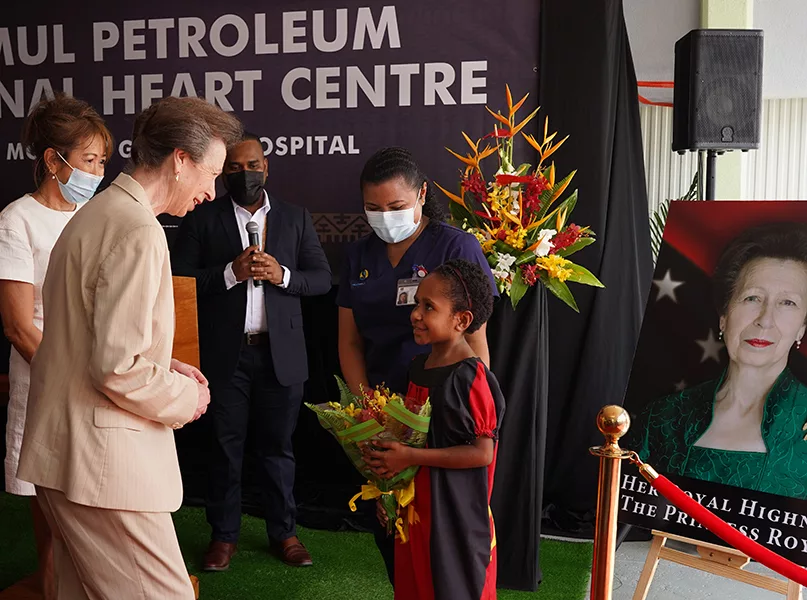
AN INSIGHT INTO THE INDUSTRY
Since 1992, PNG has been exporting crude oil, which has become one of the country’s major exports.
In 2014, PNG commenced the commercial export of LNG by the PNG LNG Project, which significantly boosted the country’s economy and became its top revenue-generating export.
The Papuan Basin in the southeastern region is the most extensively explored and developed petroliferous area of the region, with a particular focus on the Papuan Fold Belt and Papuan Foreland areas.
“Presently, the petroleum industry operates very efficiently despite a decline in oil production since 1992. “The Caution Bay plant, located outside of Port Moresby, has consistently operated above its nameplate capacity since the start of LNG exports.
More from APAC Outlook
“Indeed, the capacity exceeds eight million tonnes per annum (Mtpa) compared to the nameplate 6.9 Mtpa, allowing the PNG LNG Project JV partners to sell LNG volumes above the long-term contracted amounts independently,” Sonk enlightens us.
PNG is relatively unexplored and there are discovered gas fields that are currently inaccessible. The upcoming Papua LNG project, to be operated by TotalEnergies, will guarantee a stable supply of LNG for both domestic and export use for the next 30 to 40 years, at the very least.
“Even though PNG is blessed with extensive sustainable energy resources, such as solar, hydro, wind, and geothermal, it will take some time to develop these fully. In the meantime, KPHL is confident that LNG will play a crucial role as a transition fuel in global decarbonisation efforts,” he informs.
The island nation is in a prime location to provide LNG to Asia, a region experiencing a sharp increase in electricity demand, with 85 percent of its current energy generated from coal.
KPHL originally held a 16.57 percent stake in the PNG LNG Project in collaboration with partners ExxonMobil, Santos, MRDC, and JX Nippon, but recently boosted its ownership to 19.17 percent by acquiring an extra 2.6% share from Santos.
Elsewhere, a power generation company co-owned with Santos is another key asset for KPHL.
“We are also a 50 percent shareholder in NiuPower, which operates a 59 megawatt (MW) gas-fired power station that supplies electricity to the Port Moresby grid, and had a value of PGK222 million in 2023,” Sonk sets out.
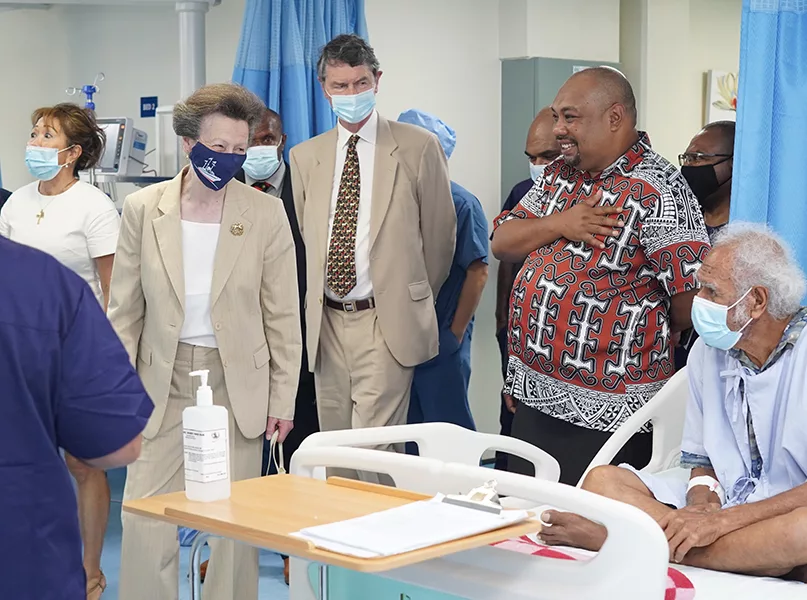
PETROLEUM PROJECTS
There are several projects that KPHL is currently involved in. For example, the company is conducting a seismic campaign in late 2024 in two of its four petroleum retention licenses (PRLs).
As owner and operator of PRLs 47, 48, 49, and 50, which encompass the Pandora, Kimu, Barikewa, and Uramu petroleum fields, KPHL is dedicated to ensuring that the significant petroleum reserves discovered in these areas are promptly and effectively developed, preventing them from remaining unutilised for extended periods.
Where possible, these gas field discoveries will progress towards commercialisation and subsequently provide benefits for landowners and other stakeholders.
KPHL’s exploration work will enhance the definition of the already discovered Kimu and Barikewa gas fields and further delineate any potential for additional resources.
“This relates to the investigation of the commercial viability of aggregating KPHL’s isolated gas fields to join existing and planned Papua LNG pipelines to supply a separate KPHL e-train processing facility at the LNG plant site,” reveals Sonk.
The concept has already received approval from the other JV partners, with KPHL also currently in the advanced planning stages for the construction of jet fuel import and storage infrastructure at Motukea International Wharf in Port Moresby.
“This is being done to address supply chain disruption caused by Puma Energy ceasing its operations in PNG.”
The new wharf facility in the National Capital District will have the capacity to store four to six weeks’ worth of fuel supplies. Similar import facilities will eventually be constructed in the city of Lae and other centres.
The focus is to find a short-term solution, which KPHL has stepped up to do in the wake of the jet fuel catastrophe resulting from Puma Energy being the sole Jet A1 fuel importer in PNG.
According to Sonk, the market restructuring will prevent future fuel problems in the country.
KPHL has identified the need for a modern, all-encompassing training and fabrication facility to support petroleum and other industrial development, located close to the LNG plant site.
This facility will feature state-of-the-art training resources and innovative fabrication technologies, ensuring the highest levels of skill development and production efficiency.
“This facility will be able to produce up to 20,000 tonnes per annum of steel components for use in major resource projects. It will also train tradespeople in the skills associated with these products and will have the capacity to provide employment to 2,000 to 3,000 people once completed,” Sonk emphasises.
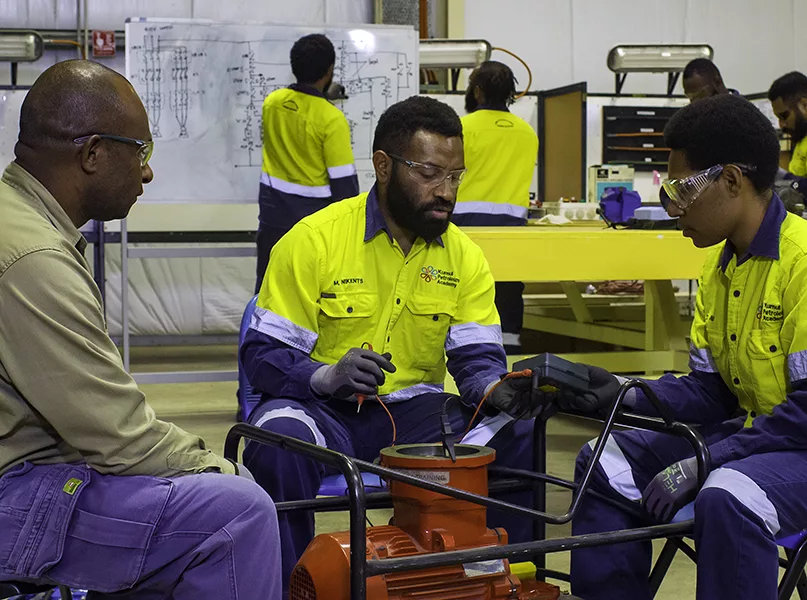
IMPROVING LIVES WITH INVESTMENTS
KPHL has provided electricity to the Port Moresby grid from the NiuPower facility as part of an equal JV with Santos since 2019.
In recent years, KPHL has also invested over PGK200 million in building more than 200 kilometres (km) of low-voltage transmission lines in the densely populated Highlands provinces.
This initiative aims to connect communities, as well health and education facilities, to PNG Power’s high-voltage Ramu grid.
“During 2023, we invested PGK64.5 million in 34 separate electrification projects across seven provinces. We recognise that access to electricity is a crucial prerequisite for effective rural development,” notes Sonk.
Rural electrification brings a multitude of advantages to local communities, including enhanced productivity of home-based businesses, increased agricultural output, better health outcomes, and improved indoor air quality through changes in lighting sources, which ultimately reduces mortality.
Regarding health, KPHL has provided unparalleled medical infrastructure support, with donations of PGK50 million to the National Heart Centre at Port Moresby General Hospital (PMGH) and PGK15 million to cancer services at ANGAU Memorial Hospital in Lae.
Additional amounts of PGK10 million each has been provided for a cancer ward and a surgical ward at PMGH.
“The company also contributed to a dialysis unit at Mendi Hospital and has made significant equipment donations to other medical centres, all of which are effectively investments in critical state infrastructure that will benefit a large number of people,” Sonk says optimistically.
The Kidney Dialysis Centre at Mendi Hospital is now equipped with six state-of-the-art dialysis machines, each costing PGK85,000.
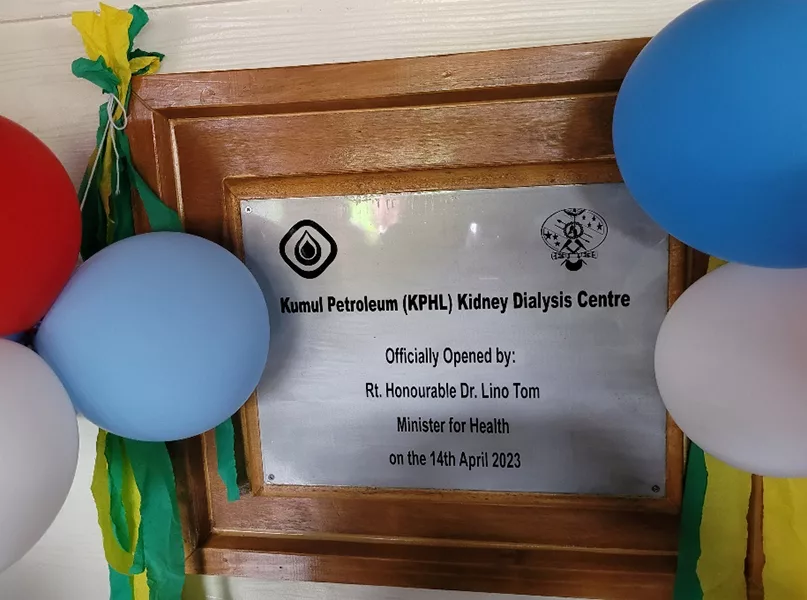
This upgrade will enable the centre to provide essential treatment to patients across the Highlands region.
The COVID-19 pandemic underscored the fragility of PNG’s healthcare system in recent years. Therefore, KPHL generously contributed over PGK5 million to aid national response efforts and other health-related projects.
The ANGAU Memorial hospital in Lae is the second-largest medical facility in PNG and fulfils the role of a district hospital, catering to the city’s healthcare needs of 149,000 individuals.
Moreover, it serves as a provincial hospital for the 675,000 residents of Morobe Province and functions as a referral facility for the 1.9 million people residing in the broader Momase region.
In September 2024, KPHL proudly confirmed its support for the country’s healthcare system when James Marape, Prime Minister of PNG, led the official commissioning of the state-of-the-art Catheterisation Laboratory at the National Heart Centre, located within Port Moresby General Hospital.
Up to this point, the centre has successfully conducted 839 coronary angiograms and performed 422 stenting procedures. Additionally, it is now available to assist individuals with heart disease by offering a range of services, including angiograms, angioplasty, pacemaker implantations, and other specialised procedures.
The latest equipment and trained staff enable these procedures to be carried out in PNG, whereas in the past, this treatment was only available overseas and at a considerable cost.
Ultimately, the latest measures will save more lives as they allow for the more efficient treatment of a larger number of cardiac patients, including procedures for reversing strokes.
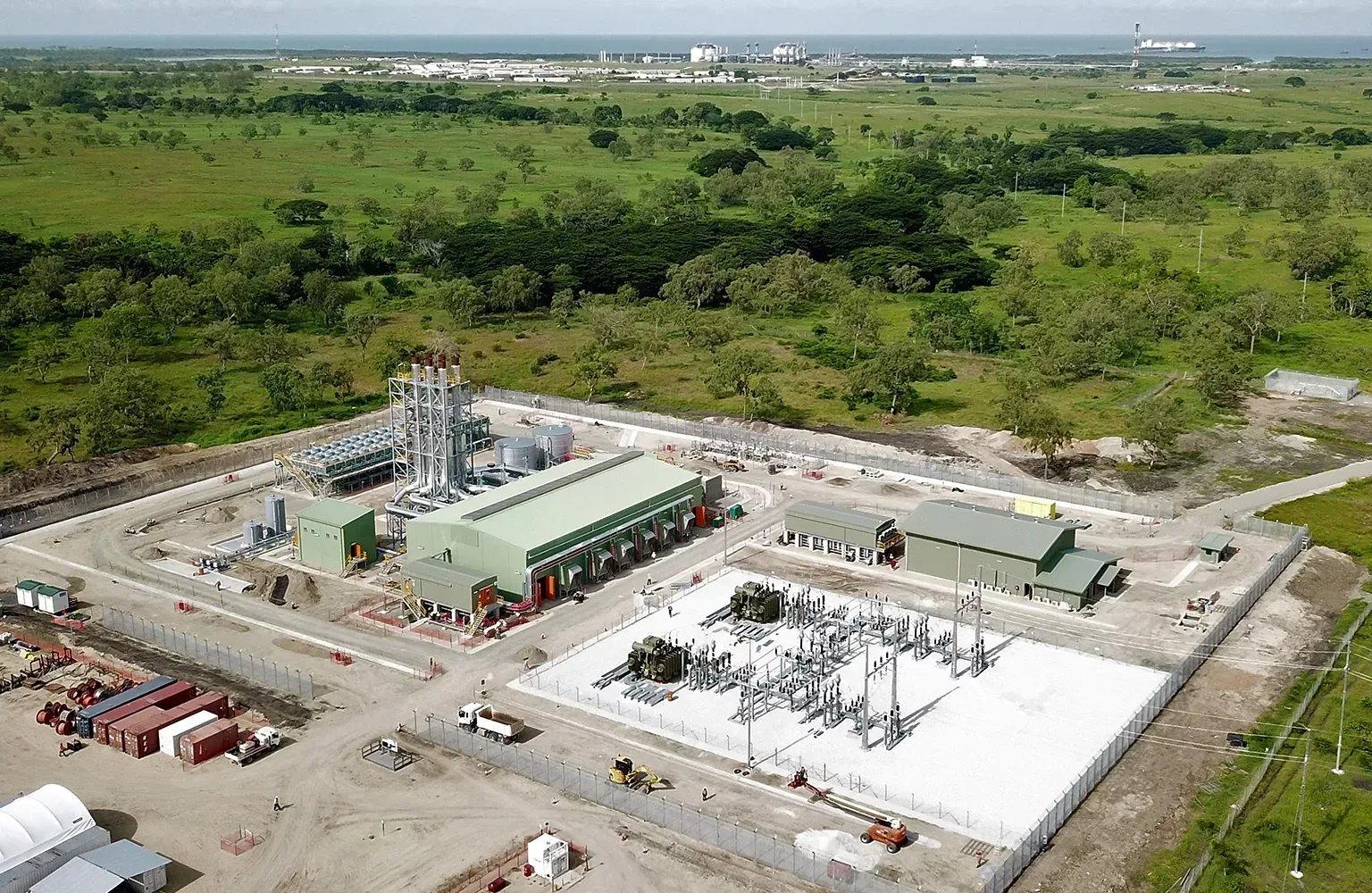
SECURING THE WORKFORCE OF THE FUTURE
Enticing and retaining top talent from PNG for crucial positions within KPHL ensures the ongoing and future success of the company in a highly competitive industry.
After implementing a robust performance management system that emphasises individual performance, talent development, and succession planning, KPHL aims to generate value and opportunities for PNG and its citizens by prioritising the training and development of its employees.
Providing competitive salaries and benefits, meanwhile, is of equal importance to the company in order to attract and retain staff.
Furthermore, most of KPHL’s workforce are Papua New Guineans, whom Sonk regularly meets in town hall meetings.
“There is a graduate development programme and a number of national professional staff who have worked overseas with Chevron and other companies for some time. They have been employed to fill senior positions and mentor new company graduates,” he reports.
Student sponsorship is part of KPHL’s corporate social responsibility (CSR) initiatives, demonstrating its commitment to developing high-quality human capital.
In collaboration with the government, KPHL has an initiative to sponsor STEM tertiary studies at overseas universities for 20 top graduates from schools of excellence in PNG annually, starting in 2025.
The company is dedicated to supporting Papua New Guinean students in successfully completing their higher education and playing a pivotal role in transforming their nation.
KPHL is also committed to providing financial support to exceptional students, enabling them to complete their studies and emerge as invaluable contributors to society.
“For KPHL, investing in people contributes to the development and prosperity of the nation just as much as investment in infrastructure and services,” Sonk prides.
In addition to financial aid, the programme aims to cultivate practical skills, nurture academic talent, and foster traits such as creativity, resilience, and diligence amongst the students.
The sponsorship programme not only provides valuable support for students’ future careers but also empowers them to excel academically at the university level.
By demonstrating exemplary conduct, students will have the opportunity to receive priority consideration for participation in the company’s Graduate Development Programme, which aims to cultivate young, enthusiastic Papua New Guinean students to a world-class standard.
This involves gaining an understanding of the company’s business operations and background, as well as the practices within the oil and gas industry and the specific roles within KPHL.
Employees will also have the opportunity to develop their potential while building practical and technical knowledge and skills that align with the company’s goals and objectives.
Graduates will additionally be guided and supported to develop the essential skills and behaviours needed to enhance productivity and performance in their roles. Further to this, they will receive professional mentoring to foster personal development and help mould them into responsible and esteemed members of the organisation and their communities.
The Kumul Petroleum Academy (KPA) is an institution that provides training for technical personnel in the petroleum industry, including control room technicians.
It was established as the only organisation to offer this type of training in PNG. Trainees are sponsored by operating companies such as ExxonMobil and Santos, whilst TotalEnergies will also support the programme in future.
In August this year, the KPA proudly celebrated the graduation of 17 trainees from ExxonMobil. Among them, 11 operators achieved certificates in plant process operation, while six were awarded certificates in instrument maintenance.
Notably, four of the trainees were female in a field that is traditionally male-dominated.
The KPA has established significant three-year contracts with both ExxonMobil and Santos to provide comprehensive training for technical personnel.
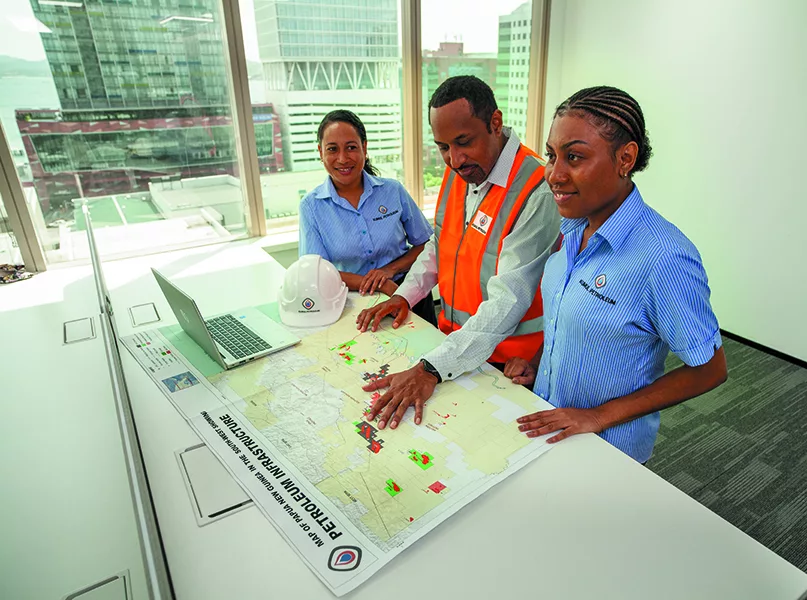
SUPPORTING SUSTAINABLE SOURCES
PNG faces significant threats from rising sea levels, primarily due to the melting of ice sheets and the expansion of seawater caused by global warming with the impact of environmental changes, which poses a severe risk to coastal areas, infrastructure, and communities.
Occupying the eastern half of New Guinea and many outlying islands, PNG possesses remarkably diverse species and ecosystems. Rainforests cover 28.2 million hectares of the country, serving as a crucial regulator of the Earth’s climate as a ‘carbon sink’.
KPHL acknowledges the importance of preserving this pristine island paradise, as the country’s ecology is fundamental to the livelihoods and cultural practices of its communities, which rely on the rich forests, flowing rivers, and bountiful oceans for sustenance, medicinal resources, and various other livelihood necessities.
As the national petroleum and energy company, KPHL is committed to achieving net zero carbon dioxide (CO2) emissions by 2050, which aligns with the PNG government’s goals.
The company is therefore dedicated to upholding high environmental standards in all its domestic and international operations and enhancing its environmental, social, and governance (ESG) footprint.
“KPHL is exploring the potential to independently undertake carbon-related projects, separate from its partners in the PNG LNG and Papua LNG projects,” Sonk expresses.
The country is ideally situated to take the lead in driving the transition towards renewable energy thanks to its vast wind, water, geothermal, and solar resources. There is a growing demand for solar power in PNG.
“When it comes to solar energy, PNG has an abundance of sunshine. Certain agencies have already set up large solar arrays in the towns of Daru and Vanimo, whilst we have collaborated with the provincial government of New Ireland on a 5MW solar power installation in the capital of Kavieng and surrounding communities,” he divulges.
Over the past few years, KPHL has invested in constructing more than 200km of low-voltage transmission lines in the Hela and Southern Highlands provinces.
As a result, PNG Power has been able to extend its reach and connect a significant number of communities to the main high-voltage Ramu grid.
The company endorses the government’s aim of providing 70 percent of the population with access to electricity by 2030. As an interim solution, it also advocates for using gas as a fuel until PNG’s vast renewable energy resources can be harnessed to generate electricity.
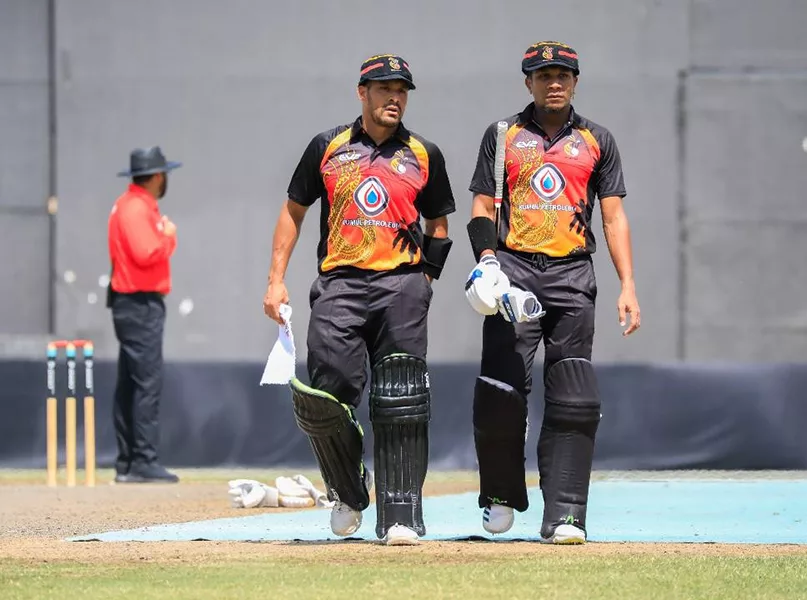
A COMMUNITY-CENTRIC COMPANY
With significant budget allocated to community development, KPHL put PGK27.5 million towards various projects last year, including agriculture, water supply, small and medium-sized enterprises (SMEs), and small infrastructure initiatives for churches, communities, and non-governmental organisations (NGOs).
However, supporting various sports is also important as it allows many community members to compete locally and internationally.
“In 2023, KPHL spent PGK17.5 million supporting codes, clubs, and events for boxing, cricket, squash, tennis, soccer, rugby union, and rugby league, with particular emphasis on junior player development,” outlines Sonk.
KPHL has been a franchised sponsor of the Kroton Hela Wigmen, a semi-professional rugby league team from Hela Province that currently competes in the PNG National Rugby League (NRL) competition.
In addition, the company is a platinum sponsor of the national rugby league team, the Kumuls, and contributes to activities related to the bid to get a PNG team into the Australian NRL competition.
Supporting the PNG Hunters, the sole PNG team to compete in the Queensland Cup, a second-tier competition in Australia, KPHL also provides support to smaller rugby league clubs.
This included the participation of the Port Moresby Vipers in a tournament in Brisbane, PRK Mendi Muruks, the Southern Highlands Provincial 9s tournament, rugby games in Wapenamanda District, and contributions to the Ipatas Cup Highlands Challenge.
Furthermore, the company has consistently participated in and sponsored annual charity fundraising golf events at courses in Lae and Port Moresby.
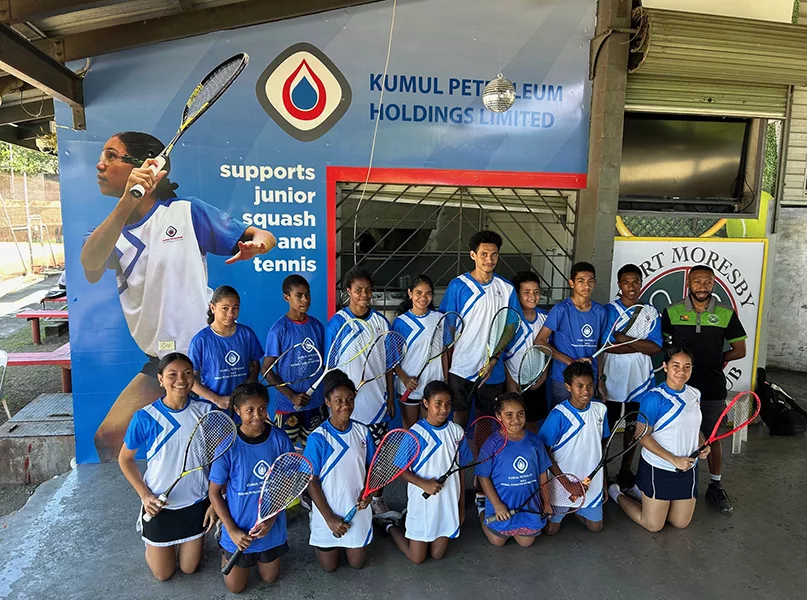
As a result, Kumul Petroleum Charity Golf Challenge events have successfully raised funds for causes such as Life Care PNG and the PNG Olympic Committee.
Cricket PNG received PGK1.2 million in funding in 2021 to support the national side’s preparation for the T20 World Cup.
Over time, KPHL has also strongly supported cultural festivals, including the Tufi Tapa and Tattoo Festival, and generously provided books to primary schools and higher educational institutions through the Buk Bilong Pikinini organisation.
It has gone the extra mile by donating computers and other essential equipment to Passam High School and the PNG University of Technology in Lae.
Additional community assistance has come in the form of monetary contributions or donations, including the provision of solar lighting kits to support the staff and children of PNG Life Care in Port Moresby.
In the coming 12 months, KPHL aims to advance the construction of the fabrication facility and fuel storage, whilst overseeing its noteworthy seismic campaign for two PRLs.
Regardless, the company’s support for sport, and particularly rugby league, will continue unabated.
“Despite numerous projects and advancements for KPHL, we will continue to offer unwavering support to propel a PNG team into the Australian NRL in 2028, something the whole country is looking forward to,” Sonk concludes.










